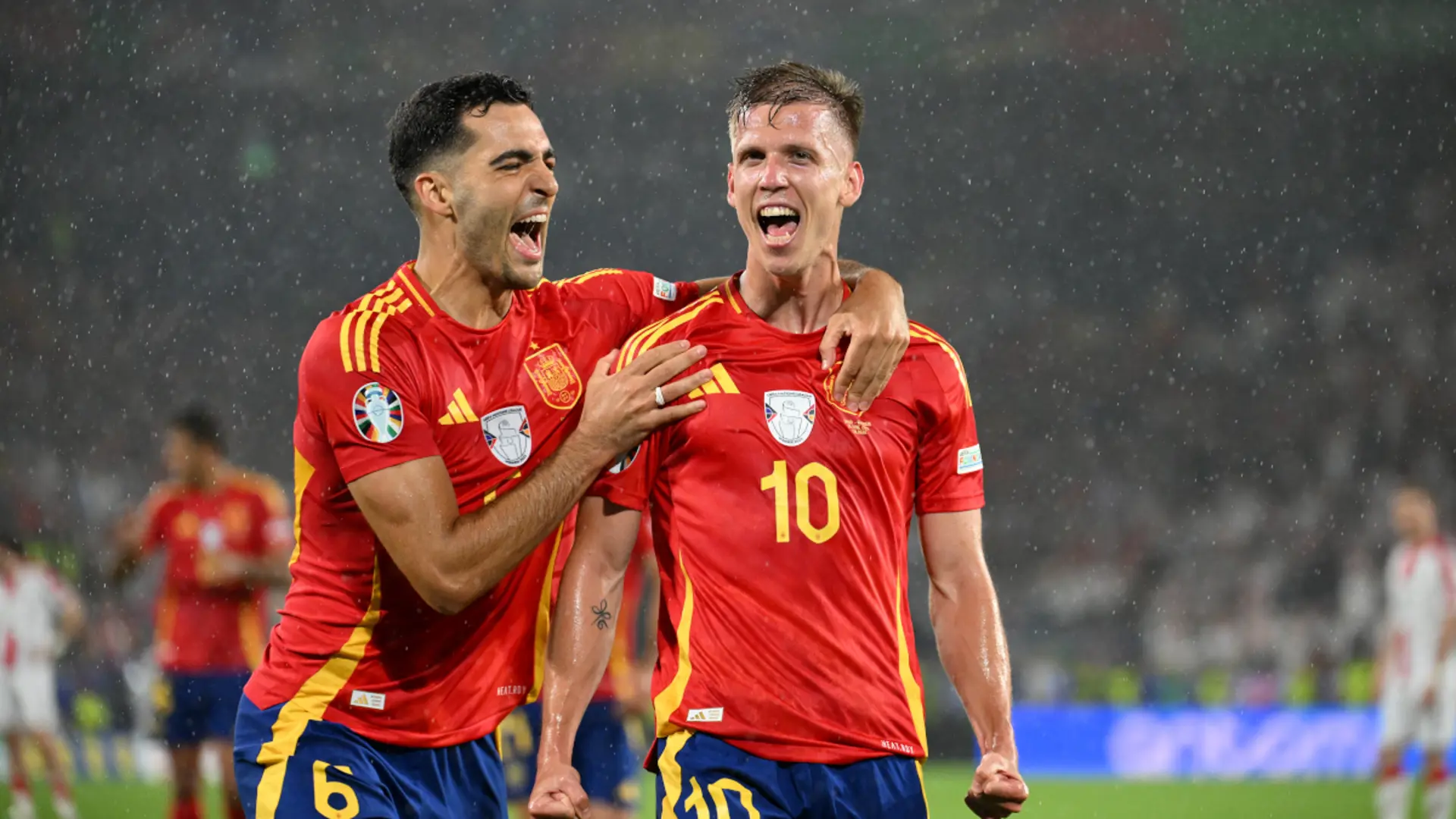Goodbye gegenpressing, hello vertical football as tournament tactics evolve

From the furious counter-pressing of Austria and Spain's vertical football to England and Turkey's sit-back-and-soak-it-up approach, Euro 2024 has seen a fascinating array of systems and tactical tweaks employed in the games so far.
As yet none has stood out in the way Spain's "tiki-taka" possession-based game did as they won consecutive Euros titles in 2008 and 2012, and Norway-based academic Mark O'Sullivan says it is because the game is constantly evolving at a rapid rate.
Advertisement
"If we zoom out, we can arguably see that tactical trends are primarily co-adaptations - essentially, teams adapting in response to each other," O'Sullivan, associate professor of football at the Norwegian School of Sports Sciences in Oslo, told Reuters.
"So, what we are often observing are not necessarily new trends as such but teams and players adapting to what has gone before."
"Gegenpressing" - counter-pressing, or disrupting the opposition as soon as the ball is lost in an effort to win it back - has become synonymous with German football, but the way it is employed is changing, as are the responses to it.
"One of the characteristics of this tournament is how many teams are balancing their intentions during the build-up - they seem to be playing over, rather than just through, the first press," O'Sullivan explained.
"We can see this as a response to how, in recent years, teams have been pressing high and the re-emergence of man to man marking in high press."
The Spaniards have long since abandoned possession for possession's sake, instead employing what they call "vertical football" to get the ball forward much more quickly to create goal-scoring opportunities.
"Spain have players to do it and they are now prioritising individual and collective function over just positioning and structure," O'Sullivan said.
One team with a very rigid approach is Gareth Southgate's England who despite being defensively solid have come in for a lot of criticism for their lack of spark in attack.
"They seem to be playing a very positional game with poor off-ball movement, as opposed to adapting to the moment-to-moment game situations," said O'Sullivan, who also holds a Uefa A coaching licence.
"It seems to be way too predictable - too many players dropping deep in the build up with a lack of cohesion as they progress up the pitch."
The early part of the tournament was dominated by goals from distance, rather than from crosses or pull-backs, while the knockout stage has seen more goals from set pieces.
LOW-PERCENTAGE OPTION
"In the previous tournaments, the overall intention seemed to be to work the ball into areas more likely to produce a goal rather than the low-per centage option of striking at goal from distance," O'Sullivan said.
"This is very evident in club football, especially in the Premier League where the rise of analytics and the expected goals data has arguably contributed to fewer shots from outside the box."
Given that international coaches have less time with their players to implement pre-planned playing patterns, O'Sullivan said there was scope for players to play with more freedom, hence a great number of shots from distance.
"With attackers free from the constraints of club football, they are adapting to this and perceiving more invitations to shoot from outside the box," he said.
The eight teams left in the tournament - Germany, Spain, Portugal, France, England, Switzerland, Netherlands and Turkey - all have different traditions in the game, which makes it impossible for one team to simply copy another.
Put another way - don't expect England to start playing like Brazil any time soon.
"There are no copy-and-paste solutions - each country has its own unique cultural context in which their players and the game there have developed and evolved," O'Sullivan added.
Advertisement
